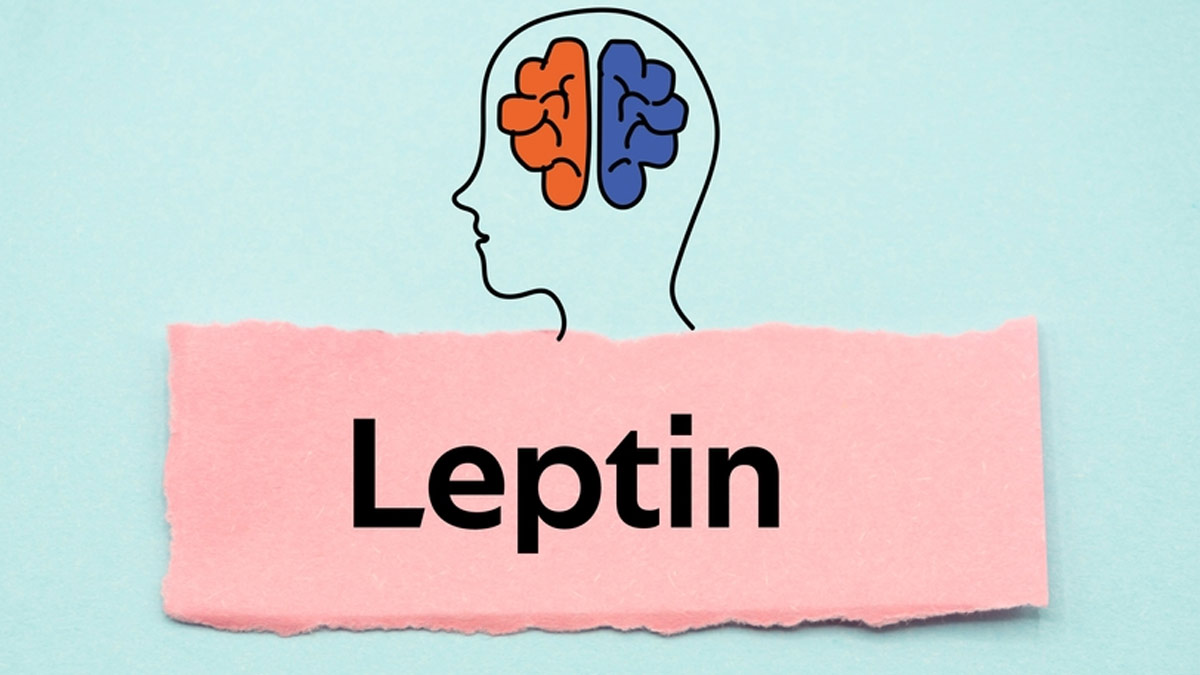
Leptin, commonly known as 'obese protein' is a peptide hormone produced by white adipose tissue. Its primary function is to regulate hunger by signalling the sensation of fullness (satiety) and managing energy expenditure. It also plays a role in burning fat and calories through fatty tissue. The amount of leptin in the blood is directly proportional to the amount of body fat. Essentially, leptin acts as a messenger between fat cells and the brain, specifically the hypothalamus and brainstem. We spoke to our expert Dr Satish N, Senior Consultant - Bariatric Surgery and General Surgery, Manipal Hospital, Yeshwanthpur, Bengaluru, who explained the role of leptin in regulating hunger and what its resistance does to your health.
Table of Content:-
How Does Leptin Regulate Hunger?

When the leptin levels drop due to fasting, the brain signals the body that fat stores are low and we must eat. This is called the negative feedback loop. Circulating plasma leptin concentrations are primarily influenced by total Body Mass Index (BMI), metabolic hormones, and gender. Women tend to have higher leptin levels compared to men. According to a 2019 study, Leptin is an adipokine that signals the brain about the body's fat levels. For this process to occur, leptin must cross the blood-brain barrier via a specific transporter that can become saturated.
Normal leptin level range:
- Females: 0.5 - 15.2 (ng/mL)
- Males: 0.5 - 12.5 ng/mL
Functions of Leptin
Leptin plays a key role in the body by performing the following functions:
- Enhances glycogen production, synthesis, and storage in the body
- It suppresses gluconeogenesis
- It prevents glucose oxidation by reducing glucose metabolism in peripheral tissues
- The high leptin levels increase energy use, which is proportional to body fat
- It decreases food intake (feeling of satiety)
Also Read: Understanding Hangry: How Hunger Influences Emotions And Health, Explained by Expert
What Is Leptin Resistance?

Leptin Resistance (LR) is a condition characterised by a signalling defect between fat cells and the brain. LR is a significant factor contributing to obesity. In obese individuals, there is an increased level of leptin along with an increased number of fat cells. In LR, there is a signalling defect or reduced brain sensitivity to leptin. As a result, the body perceives insufficient energy, leading to an increased tendency to eat more and conserve energy.
Causes of Leptin Resistance
Genetic mutations affect leptin or its receptors
- Defective leptin receptors in the brain
- A reduced number of leptin receptors or limited leptin crossing the blood-brain barrier
- Hypothalamic inflammatory signalling
- Interference from free fatty acid metabolites with leptin signalling
- Conditions, such as malnutrition, autoimmune diseases, non-alcoholic fatty liver disease, neurodegenerative disorders, and depression
- Food addiction and elevated cortisol (stress hormone) levels can reduce the brain's sensitivity to leptin
Key Markers of Leptin Resistance
Leptin resistance can be identified through key markers, such as leptin-receptor mRNA and protein levels, which indicate how effectively the body is responding to leptin.
Leptin Resistance and Dieting

In individuals with leptin resistance, losing weight can decrease body fat mass and significantly lower leptin levels. However, the brain may not reverse its resistance to leptin, leading to increased appetite, reduced motivation to exercise, and decreased calorie expenditure. The brain perceives this as starvation and induces mechanisms to combat fat loss and regain it, thus leading to yo-yo dieting.
Also Read: Vicious Cycle Of Yo-Yo Dieting: Expert Explains Its Health Implications And How To Break The Cycle
The Leptin Diet
To manage leptin resistance, it is recommended to follow a leptin-friendly diet that includes:
- Avoiding late-night meals
- Eliminating food additives, particularly those in sodas
- Limiting carbohydrate consumption
- Practicing portion control for better regulation
How to Combat Leptin Resistance?
Leptin resistance can be addressed through long-term lifestyle and dietary changes, including:

- Ensuring adequate sleep
- Engaging in high-intensity exercise
- Consuming more soluble fibre
- Avoiding processed foods to reduce inflammation
- Lowering triglyceride levels
Foods to Avoid
Certain foods and drinks are known to block leptin and should be avoided, including:
- Energy drinks
- Regular and diet sodas
- Artificial sweeteners
[Disclaimer: This article contains information provided by an expert and is for informational purposes only. Hence, we advise you to consult your own professional if you are dealing with any health issues to avoid complications.]
Also watch this video
How we keep this article up to date:
We work with experts and keep a close eye on the latest in health and wellness. Whenever there is a new research or helpful information, we update our articles with accurate and useful advice.
Current Version